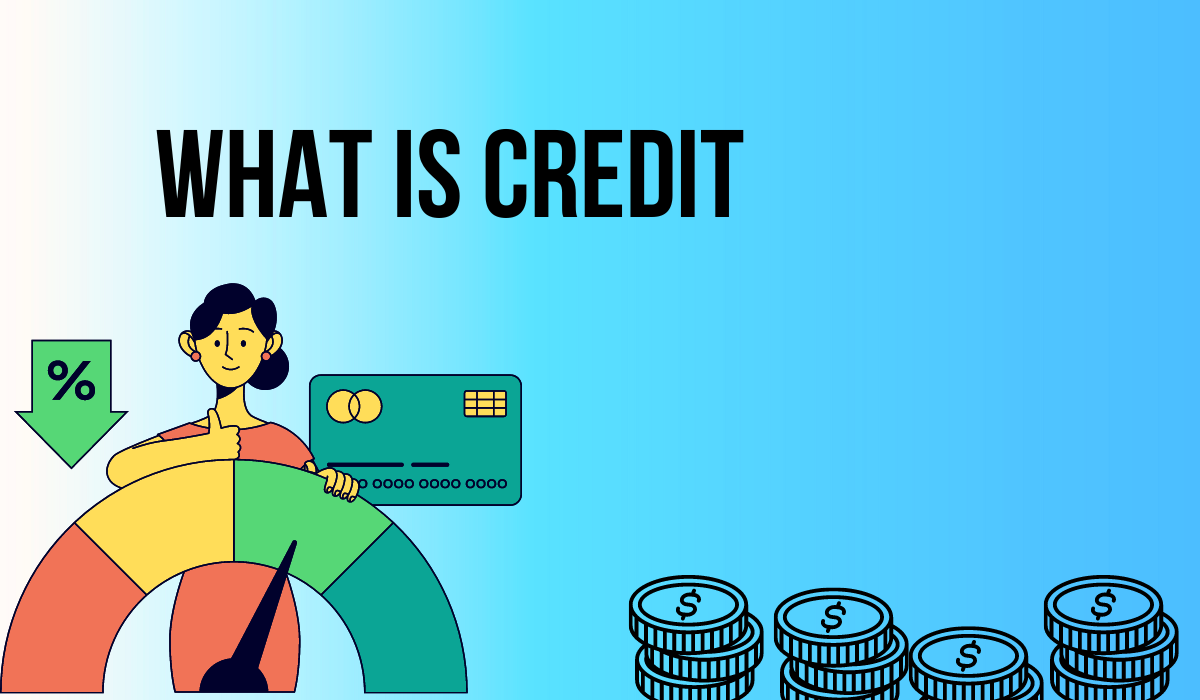
What is Credit?
Credit is like borrowing money or buying something now and promising to pay for it later. It’s an arrangement where you can get things you need immediately, such as a car or using a credit card, with the agreement to repay the money over time. It also reflects how trustworthy you are in repaying debts, known as your credit history. So, credit is a way to manage your finances by allowing you to make purchases and payments, even if you don’t have the money upfront
This phrase has simply more than one meaning in finance of Credit, but the most people think of credit as an arrangement in which the borrower borrows money from the lender and then pays back to the lender money along with interest at period of time.
Credit can also mean a person’s or business’s who ability to pay back debts money or credit history. A change to a company’s balance sheet lowers decrease its assets or raises its liabilities or equity in the company’s balance sheet.
Understanding Credit in Finance
Multiple Meanings in Finance
While credit carries various interpretations for various function in finance, it is commonly viewed as an arrangement where a borrower borrows money from a lender the amount of credit, and repaying the borrowed amount of credit along with accrued rate of interest and accurate date of period credit repayment.
Beyond Transactions: Credit’s Scope
Credit extends beyond mere monetary exchanges, encompassing an individual’s or business’s capacity to settle debts, as reflected in their credit history. Notably, changes to a company’s balance sheet impact its assets, liabilities, and equity.
Functionality of Credit
Dynamic Borrower-Lender Relationship
Credit functions as a dynamic relationship between a borrower and a lender. The borrower acquires funds and commits to repaying the borrowed sum, including accrued interest, at a later date.
Purchase on Credit and Credit Cards
Traditionally, credit involves an agreement to purchase goods or services with a commitment to pay later. Presently, Credit cards serve as a prevalent means for such transactions, introducing a banking intermediary.
Various Forms and Considerations
Credit’s Diverse Forms
Credit assumes diverse forms, encompassing bank loans for homes, cars, signature loans, and credit lines. It can also signify a reduction in debt, such as returning a purchase to lower the owed amount.
Credit in Financial Accounting
In financial accounting, a credit entry denotes the receipt of money. Notably, when a company buys on credit, it affects various sections of the balance sheet, impacting assets and liabilities.
Key Considerations and Definitions
Defining Credit
Credit is predominantly defined as an agreement between a lender and a borrower. It also reflects creditworthiness or a company’s credit history and accuracy.
Credit vs. Loan Distinction
Credit and loans represent distinct ways of acquiring funds. Unlike a loan, credit provides a predetermined sum for flexible use in various such aspect in business, organization, for personal.
Bank Credit and Its Determinants
Bank credit refers to the total amount a person or business company or corporate can borrow money. Approval of the credits depends on factors such as like credit score, income person or income of company or corporate, collateral, assets, documentation and existing debt.
Credit Money and Its Significance
Credit money represents value created through claims or debts for the future, often facilitated through fractional reserve banking, contributing to modern economies.
Defining Credit in Various Contexts
Multifaceted Definition
Credit holds diverse meanings, ranging from the balance in a bank charge account to academic credits and the act of honoring commitments or reimbursing funds into an account.
Credit Report and FICO Score
Credits are given based on information in credit reports, contributing to the calculation of the FICO Score, considering payment history, amounts owed, length of credit history, new credit, and credit mix.
The Role of Credit in Financial Strength
Credit is integral to financial strength, allowing immediate acquisitions like car loans or credit cards with an eye toward securing future loans through continual creditworthiness improvement.
Conclusion:
Credit embodies a multifaceted concept in finance, encompassing both financial transactions and the broader notion of creditworthiness. It enables individuals and businesses to access resources promptly while committing to repayment over time.
From traditional loans to credit cards and beyond, credit plays a pivotal role in modern economies, shaping financial behaviors and influencing economic dynamics. Understanding its various forms, functions, and implications is essential for effective financial management and long-term stability.

